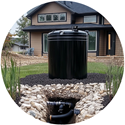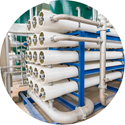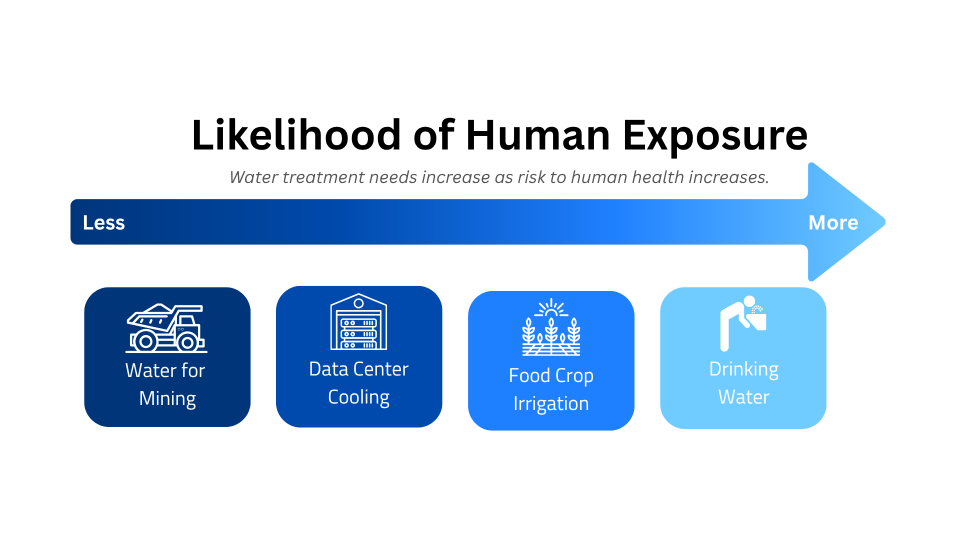Basic Information about Water Reuse
Water Reuse or Recycling
Water reuse, also called water recycling or water reclamation, is the treating and repurposing of "waste" water, such as municipal wastewater or stormwater, for alternative uses like landscape irrigation or even drinking water.
Recycled water is a reliable supply of water. Over 500 facilities in the United States recycle water to meet community needs.
Communities use recycled water to:
- Protect Against Droughts: 48 U.S. states experienced drought in 2024. Water reuse can significantly help reduce the impacts of drought by providing a reliable water supply.
- Supply Industries: Water is a critical part of many industries--from the data centers that power Artificial Intelligence, to automotive manufacturing, or even your favorite clothing manufacturer.
- Protect Rivers and Streams: Wastewater treatment plants and agriculture can be a source of excess nitrogen in rivers and streams. Treating and reusing water for a new purpose can help reduce these sources of nitrogen pollution.
- Enhance Groundwater Supplies: Recycled water can be injected into an underground aquifer to protect freshwater supplies from saltwater intrusion, caused by sea level rise and from land subsidence, caused by excessive groundwater pumping.
Sources of Recycled Water

Stormwater
Washington, DC, captures and reuses stormwater to reduce pollution in the Anacostia River.

Municipal Wastewater
Fairfax County, VA, recycles its community wastewater for commercial car washing, construction, and other non-drinking water applications.

Showers, Sinks, and Laundry Water
The Corkscrew Swamp Sanctuary treats the wastewater generated at their facility and recycles it for toilet flushing.

Industrial Wastewater
Mining and oil and gas operations can recycle the water they generate during production for additional industrial activities.
Basics of Water Reuse Treatment

Destroy or Remove Bacteria, Viruses and Protozoa
Water treatment is designed to remove the germs that can make you sick. Filters physically remove germs based on their size. Disinfection with chlorine, ultraviolet radiation, or ozone can destroy them.

Remove Chemicals
Chemicals are removed using advanced membrane and filter technologies. These processes reduce or remove regulated and unregulated chemicals.

Redundancy
There are multiple treatment processes that remove the same types of germs and chemicals. These processes create redundancy to ensure proper removal.

Prepare for Distribution
Recycled water that is used for drinking may need salts and minerals added after treatment to improve the taste. The pH may be adjusted to prevent corrosion of the water pipes.
Protecting your health
All water can be treated to make it safe for its intended use, but the amount of treatment needed depends on the risk to human health or the environment. The graphic, likelihood of human exposure, presents some of the uses for recycled water and how the treatment varies, based on the exposure to humans.

Water Reuse Regulations in the United States
There are more than 70 drinking water reuse projects serving over 8 million people per day.
EPA does not require or restrict any type of reuse. Generally, states maintain primary regulatory authority (i.e., primacy) in allocating and developing water resources. Some states have established programs to specifically address reuse, and some have incorporated water reuse into existing regulatory frameworks. EPA, states, tribes, and local governments implement programs under the Safe Drinking Water Act and the Clean Water Act to protect the quality of drinking water source waters, community drinking water, and waterbodies like rivers and lakes. Together, the Safe Drinking Water Act and the Clean Water Act provide a foundation from which states can enable, regulate, and oversee water reuse as they deem appropriate.
Different recycled water sources and end uses may require different treatment and monitoring requirements to protect public health. Given treatment requirements vary case-by-case and system-to-system, states with water reuse regulations, guidelines or policies will often create separate treatment specifications based on the source of reclaimed water and the end use. For example, reuse of rainwater for irrigation purposes may require less stringent treatment standards compared to those imposed for reuse of municipal wastewater for potable end uses (i.e., drinking water). To search for state-specific water reuse regulations, guidelines, and policies for various reclaimed water sources and end uses, check out the U.S. EPA’s REUSExplorer tool.






